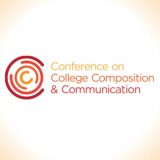Faculty Books: Victoria Carty on the Worldwide Immigration Crisis
January 20, 2021
Dr. Victoria Carty, Associate Professor of Sociology in Wilkinson College, explores recent world-wide migrations, the rise of nativism and white supremacy, and the important role of social movements in her most recent book, “The Immigration Crisis in Europe and the U.S.-Mexico Border in the Era of Heightened Nativism.” . The Voice of Wilkinson sat down to chat with Dr. Carty about her latest work.
Voice of Wilkinson: Can you give us a quick synopsis of The Immigration Crisis in Europe and the U.S.-Mexico Border in the Era of Heightened Nativism?
Victoria Carty: My book provides a comparative analysis of the U.S.-Mexico border and the European Union (EU) to understand recent dynamics, laws, and ethics of international immigration. It highlights the explosive growth of immigration from the Middle East and North Africa to the EU, and from Central America and Mexico to the United States, and how this is connected to the rise of right-wing authoritarian regimes in the EU and the United States which espouse a political agenda in part by exploiting the issue of immigration.
More broadly, it demonstrates the complex relationship between the record numbers of immigrants to trends in the West toward illiberalism, extremist politics, a questioning of the legitimacy of democracy, the rise of nativist sentiments, ethno-nationalism, and xenophobic policies amidst economic anxiety caused by globalization and heightened racial animus. Finally, it explores how the rise of autocratic regimes on both sides of the Atlantic is being challenged by social movement actors.
VoW: What do you hope readers learn from your book?
VC: I hope that readers will learn about the various theories in which struggles of immigration are embedded on both ends of the political spectrum. On the one hand, communitarian theory embraces a sense of national unity in opposition to multiculturalism. Cosmopolitanism, on the hand, is a more inclusive approach and open to globalization and views immigration from a humanistic perspective. What is important to understand is that these two theories are not mutually exclusive when we grapple with the necessity of countries to secure their borders, have reasonable policies to help refugees and asylum seekers, while also keeping their citizens safe. I also want readers to understand the importance of critical race theory to unpack the now common sentiments of grievances and perceived existential threat of a loss of entitlements and rights, once secured only for whites, is related to immigration. And finally, it is important to recognize modes of resistance to these dynamics as I document the important role of social movements in shaping the politics of immigration.
VoW: Such an important time for this topic. When and why did you decide on this topic?
VC: I decided to write on this topic after years of studying the Arab Spring uprisings beginning in 2014 which resulted in failed states in many parts of the Middle East and North Africa. This resulted in a mass exodus of immigrants which overwhelmed many European countries that were not prepared for the sudden influx of refugees and asylum seekers. The second motivating factor was the explosion of unaccompanied minors fleeing the failed states in the Northern Triangle of Central America (El Salvador, Guatemala, and Honduras) and the massive caravans of families trying to enter the United States escaping gang violence, dire poverty, and lack of opportunity in their home countries. And third was the increase of ICE (Immigration Customs Enforcement) raids on workplaces, homes and neighborhoods, and the struggle of DACA (Deferred Action for Childhood Arrivals) to pursue higher education.
I was also curious about the sustainability of the EU to sustain itself given the Brexit controversy, and impact that Trumpism would have nationally and globally. On both sides of the Atlantic “populist” leaders are rejecting democratic liberalism, globalism, and multiculturalism. Both regions are also experiencing a rise of anti-Semitisms, Islamophobia, and nativism, much of it fed by misinformation through mainstream and social media. The “America First” ideology – a trend toward isolation and a closing of borders – is also common in much of Europe. Complementing these dynamics is the growing popularity of the “Great Replacement” theory: the belief that as more countries becoming a majority minority whites feel that they are losing their power and status because they envision their countries as being overrun by immigrants.
VoW: While researching/writing this book, was there something you learned and were surprised about?
VC: During my research I was surprised at the extent that media play in promoting misinformation which fuels a sense of grievance and victimhood. For example, I was shocked to learn that 2/3 of Americans between the ages of 18-29 believe that the Holocaust was a myth, has been exaggerated or not sure. The Public Religion Research Institute in 2016 reported that 48 white working-class Americans agree with the statement, “things have changed so much that I often feel like a stranger in my own country.”
The racist vitriol toward immigrants I also found stunning, which sheds light on the comment above, and the quotes below. For instance, on Fox News Laura Ingraham opined: “it does not seem like the America we know, and love doesn’t exist anymore. Massive demographic changes have been forced on the American people…From Virginia to California we see stark examples of how radically, in some ways the country has changed. Now, much of this is related to both illegal and legal immigration, that of course progressives love.” Referring to the caravans of migrants from Central America, on his radio show Rush Limbaugh stated, “the objective is to dilute and eventually eliminate or erase what is known as the distinct or unique American culture. That is why they call it an invasion.”
This rhetoric is not mere dialogue but has had deadly consequences. The El Paso shooter, who carried out the largest terrorist attack against the Latinx community in modern times, left a manifesto stating, “I am simply defending my country from cultural and ethnic replacement brought on by an invasion…I am against race mixing because it destroys generic diversity and creates identity problems…the natives (American Indians) didn’t take the invasion of Europeans seriously and now what’s left is just a shadow of what it was.” Thus, this sense of self-preservation due to a perceived threat underlies much of this belief system which leads to extremism and violence against immigrants.
VoW: What’s next?
VC: I am interested in doing research on the legacy of Trumpism and how his failure to win a second term, and the recent violence at the Capitol in Washington D.C., may affect populist efforts in the EU. Another issue I want to explore is whether the damage done to the post-World War II transatlantic alliance can be reversed under the new Biden administration. At the national level I want to research how the United States will respond to domestic terrorism. The number of white supremacist murders more than doubled in Trump’s first year in office, and anti-Semitic crimes rose by 57 percent between 2016-17 which represents the largest increase in a one-year time frame as reported by the anti-Defamation League. In 2017 and 2018 FBI made more arrests connected to domestic terror than to international terrorism. The FBI reported a 17 percent increase in the number of hate crimes between 2016-17 and hit a 16-year high in 2018; most against Latinos followed by Muslims and Arab Americas. I would like to research if these trends will hold steady, despite a change in leadership.


